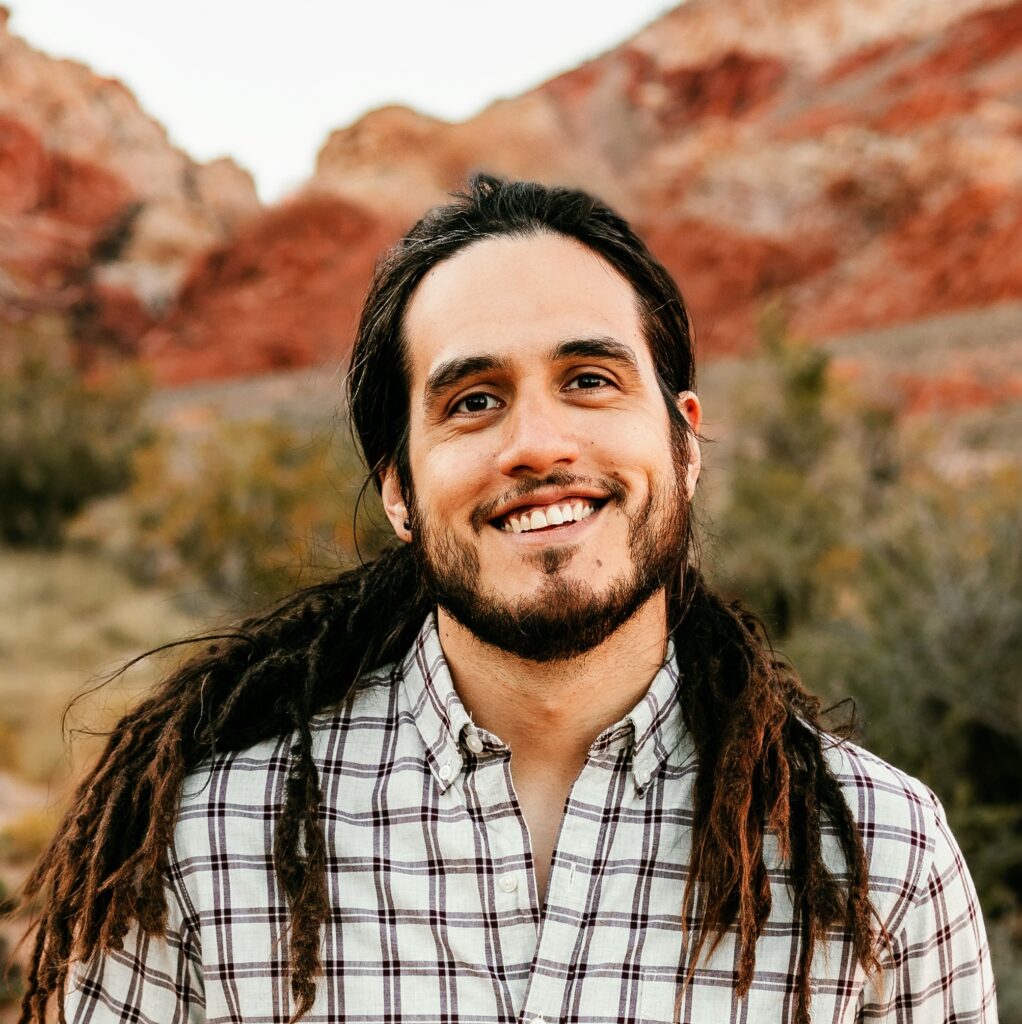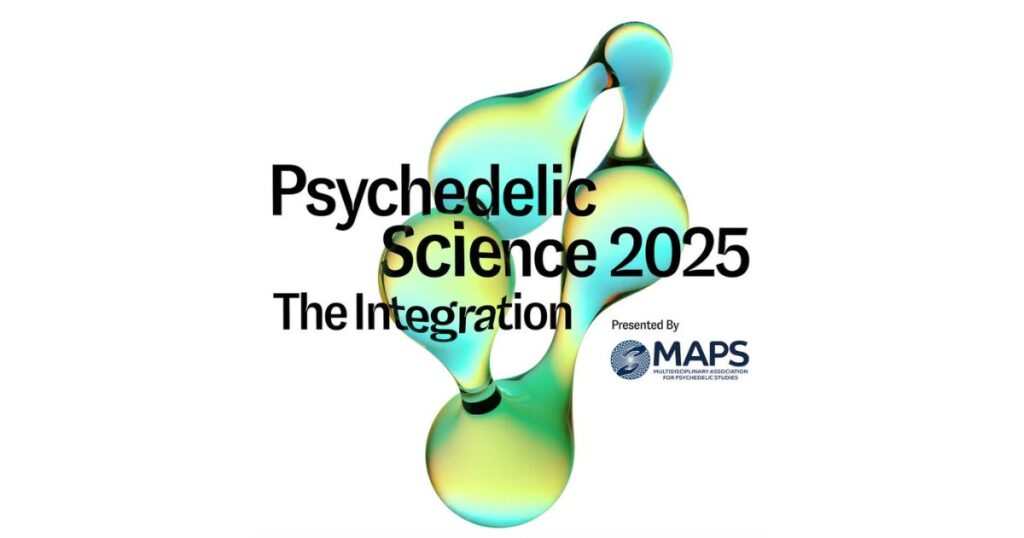With a passion for psychedelics, a collegiate background in science, and a kendama in hand, I arrived at Psychedelic Science 2025 ready to explore, learn and connect. Psychedelic Science is the largest gathering of Psychedelic Practitioners, Facilitators, Researchers, Authors, Coaches, Entrepreneurs and Advocates alike, meeting together every two years. MAPS presents the event.
The Multidisciplinary Association for Psychedelic Studies was founded by Rick Doblin in 1986. MAPS has led the charge in clinical research involving MDMA, LSD and psilocybin for mental health, personal growth and overall well-being. This year’s conference carried the torch, advancing research, policy and shaping the cultural narrative around psychedelics.
Note this article is far from a complete recap as there was simply too much going on for one article. Instead, I’d like to present a birds eye view of the conference, the industry and different perspectives within it.
Taking place in Denver’s Colorado Convention Center from June 16th to 20th, the conference was truly impressive in scope and scale. Over 700 speakers spread across 10 stages, covering 14 programming tracks, a busy expo hall and after-events. I was triple and even quadruple booked throughout the conference trying to do and see everything I could, often having to choose between excellent sessions like Paul Stamets speaking on mycology in the expo hall or Alex & Allyson Grey discussing sacred psychedelic spaces way across the building.
Throughout the show, I was talking with everyone I could about the state of things and the direction of the psychedelics industry. There were a few recurring themes that came up, but first lets zoom out and look at the big picture.
Ready for this? The Psychedelics Industry isn’t “really” an industry (yet). It’s more of a movement and a collection of initiatives. Are there emerging sectors within psychedelics? Well, yes, but the full reality is far from settled and is shifting fast. Ketamine clinics are already scattered across the US doing good work quietly.
Oregon was the first US state to legalize psilocybin therapy through Measure 109 to create a regulated licensed system for therapeutic services. Colorado wasn’t too far behind with Proposition 122 which decriminalized the personal use, possession and cultivation of psilocybin.
At the conference, I was in the crowd when Gov. Jared Polis announced that statewide pardons would be granted to any offenders and that the state is encouraging local municipalities to do the same. These are the seeds of the “industry.” It’s up to us to make sure it grows correctly.
What’s still louder than policy or profit is the community, and it was the strongest current running through the event. The conference was part TED Talk, part Burning Man in theme and attendance. There was a real reverence for plant medicine and psychedelics along with the altered states they bring and their abilities to heal and bring people together.
The community came together to educate, advocate and support. It contrasted with the clinical and biomedical sides of the industry. Raising important questions like What is lost when psychedelics are framed only as medicine? What happens when we remove the ritual and community experiences that accompany psychedelics in the underground and have been here all this time?
Therapy and clinical use represent the current legal frontier of psychedelics, so it’s no surprise that this thread also ran strong through the conference. Many talks, booths and panels focused on the infrastructure needed to launch and sustain licensed clinics.
True to the “science” in Psychedelic Science, one of the most interesting areas was the research poster section of the expo hall. Rows of printed studies covering everything from philosophical inquiries and historical context to molecular interactions and neurobiological mechanisms.
Viewing psychedelics strictly through the lens of medicine as something to be prescribed in controlled settings by trained facilitators is a model that’s here to stay, and one that’s sure to expand. Ideally, this leads to more trauma-informed care and access to healing, but this approach isn’t without tradeoffs.
Regulation brings high costs, and legal therapeutic sessions or even structured microdosing programs are often prohibitively expensive for most people. That tension between access and oversight, between grassroots and institutional is part of why the broader community continues to show up with such force and passion.
While I personally loved the contrast, I can only imagine what it may seem like to outsiders. CEOs networking with researchers all intermixed with meditative healing circles and barefoot sacred spaces; there was a lot going on.
I went from a very in depth talk on psychedelics and their historical association with the religions of the world to a wildly different talk about raving as a modern ritual. It was awesome for an enthusiast and journalist, but it did show some cracks in the foundation.
There is a sense of “gate-keeping” or “guru” mentality with some brands and influencers where they did psychedelics a few times and now started a company to profit off of them. This kind of thing smacks of inauthenticity and shows that psychedelics themselves are not the medicine. The real medicine, and sometimes the harder part of things, is the prep, mindset and integration.
Not everyone does that. The different worlds blended and connected through reverence, commerce, science and/or community while sharing a deep love and belief in the potential. Did the event answer where the industry and culture are headed? Nope. But it definitely illuminated and motivated the full spectrum of folks who are going to be pushing this forward and shaping it as we go.
You could feel the difference when someone was rooted in community versus strategy. With so much going on, some of the best moments weren’t on the big stages, but in spontaneous gatherings. Like the massive drum circle in the convention center lobby complete with tribal members dancing and singing Icaros you might hear during an ayahuasca ceremony, surrounded by passionate and respectful onlookers. It was raw and beautiful, a reminder that this work is spiritual, ancestral and alive.
Groups like PATA, the Psilocybin Assisted Therapy Association in Oregon, brought insights into how real-world, ethical facilitation is already happening. The advocacy group Decriminalize Nature also had a powerful presence, reminding attendees that this movement was built from the ground up by advocates and organizers who never waited for corporate funding or FDA trials.
These wonderful people, community workers, cultural stewards and facilitators helped to remind me what the soul of this space looks like when it’s not trying to sell itself. When psychedelics are treated with care and context, it’s not about ego or growth metrics it’s about healing and connection.
Now for some of the ideas I encountered or couldn’t stop thinking about myself. First, the elephant in the room: no one owns psychedelics, but plenty of people are trying to package them. Commodification and control are knocking at the door of one of the last truly ungoverned zones of consciousness: the world of the psychonaut.
We still barely understand consciousness from a scientific perspective, so can we fully understand the psychedelic experience beyond the medical sense? Or maybe psychedelics could help to pave the way towards a better understanding of consciousness?
I carry some real concern here, shaped by a decade watching cannabis go from counterculture to consumer product, but psychedelics are different. Their nature seems to resist easy branding. They shake up the hierarchy.
They don’t play nice with capitalism; in fact, they can dissolve the very foundations of it. Psychonauts are, by design, skeptical, resourceful and slow to conform, so maybe we’ll push back. But does it even have to be a fight?
Colorado’s model decriminalizing personal use and possession might offer a middle path: keeping psychedelics available to the public while avoiding full medical gatekeeping. At the same time, clinical frameworks offer something critical: access for people who would never walk into a ceremony, a festival or try mushrooms in a friend’s living room. Both models have value, maybe they can coexist, but after watching cannabis struggle with overregulation and corporate capture, I can’t help but remain cautious, optimistic but cautious.
Cannabis had one molecule to manage. Psychedelics are an entire constellation of molecules. With ketamine clinics already established, psilocybin now licensed in Oregon and decriminalized in Colorado, iboga research underway in Texas, and multiple ayahuasca churches operating in legal gray areas; it’s clear this isn’t a single wave, it’s a rising tide. So where does it end? Do we draw lines? Or are we drifting toward a more libertarian, choose-your-own-adventure model of mental health and spiritual development?
The truth is, what happens next won’t be decided by science or startups alone. It will come down to community, education and cultural intention. If we want to keep psychedelics soulful and weird while scaling them, then we have to stay involved. And stay human.
My thoughts on the conference could go on and on and I’m thankful to Psychedelic Science for providing the space for them to surface. The psychedelics industry is layered, complex and sometimes contradictory. What it needs now is less noise and more listening. If you had a powerful experience with psychedelics, that’s awesome, but please don’t rush off to build yet another retreat center.
Sometimes the psychedelics are just trying to give you what you need, not what you want. To move forward, this space doesn’t just need more money, companies or research, it also needs humility, education and a willingness to listen. The conference exceeded my expectations and will be on my radar going forward. Can’t wait to see what comes up on the road to Psychedelic Science 2027!

Rob Sanchez is the founder and host of Apartment 113, a cannabis & psychedelics industry podcast and software product management company. With over 13 years of experience spanning the full seed-to-sale lifecycle, Rob has worked extensively in cannabis software, compliance, and ERP systems across North and South America, from Colombia to Canada.
A Certified Ganjier, Agile Coach, and Product Manager, he is passionate about championing authenticity over commercial hype. Through storytelling and community-building, Rob elevates cannabis and psychedelic culture by bridging media, technology, and industry innovation.

















